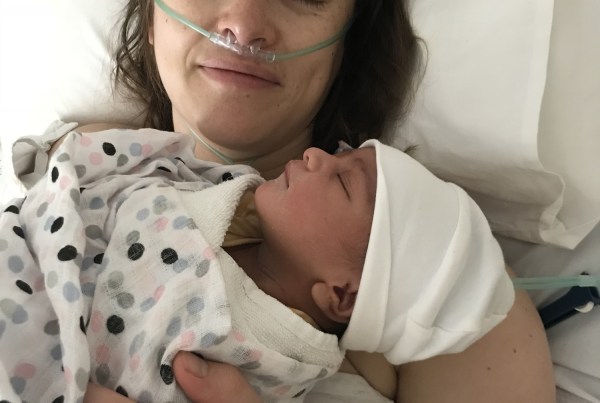Writing by Haylee Penfold // Illustration by Joy Kolber // It’s frustrating, not only because a diagnosis is still questionable and so is a treatment, but because of the things I miss, like a social event or a birthday, because I’m in the position of not being able to leave my bed without fainting.
Writing by Haylee Penfold // Illustration by Joy Kolber
The stiff sheets, white walls, and overwhelming scent of sanitizer have all become familiar to my senses. The discomfort from the cords attached to my chest from the heart rate monitor and the monitor’s quick and repetitive beep are both things that don’t seem to bother me much anymore. The only thing clouding my thoughts is the slim chance that this time, while I lie on the hard mattress, I’ll be given an answer. Or will I be given the same talk, with the same apologetic tone and sympathetic eyes that come with, “It’s hard to define” or “we’re unsure of a diagnosis at this point”?
It’s been eighteen months; before then I couldn’t have told you what it’s like to faint, or what it feels like to have your heart race dangerously fast; eighteen months ago I couldn’t tell you the panic that follows the few seconds after waking up after collapsing, I couldn’t explain the pain of a migraine that lasts weeks, or injuries that are the result of passing out in a dangerous place —because eighteen months ago I was fine. But now I could tell you what it’s like, because I have those things happen almost everyday.
It’s frustrating — not only because a diagnosis is still questionable and so is a treatment, but because of the things I miss, like a social event or a birthday, because I’m in the position of not being able to leave my bed without fainting. I’m seventeen; I should be doing those things.
What I also should be doing, is going to school, which has become close to impossible for me at most times. I’m in my final year of high school and I’ve failed to attend most of my third term, because what do you do at school? You walk to classes, climb stairs… All things that involve keeping your heart rate up. These seemingly simple things have proven to be extremely difficult for me to handle without becoming extremely dizzy, lethargic, or fainting completely. When my teachers or fellow pupils ask, “why haven’t you been at school lately? Are you okay?” it’s hard to answer, because the truth is, I don’t know; the doctors can’t tell me why exactly this is happening and why I haven’t been at school. The second question is even harder to answer, but my reply is always the same: “I’ll get there.”
At this point my attitude remains be to just do what I can, and to do my best at it. I’ve accepted that right now, I can’t run a marathon or swim the length of four Olympic swimming pools, but I can wake up everyday with a positive attitude and the strength to do what I can; even if that’s just walking to the fridge on my own, I can say I tried my best that day and have another go tomorrow.








I’m so sorry you’re going through this. It sounds a lot like a lot of the people I’ve met with dysautonomia. I hope you find your answer soon